
Gelechioidea is the superfamily of moths that contains the case-bearers, twirler moths, and relatives, also simply called curved-horn moths or gelechioid moths. It is a large and poorly understood '"micromoth" superfamily, constituting one of the basal lineages of the Ditrysia.
The Holcopogoninae are a subfamily of moths. They belong to the huge the superfamily Gelechioidea, of which they represent a minor but apparently quite distinct lineage.

Anarsia is a genus of moths in the family Gelechiidae.
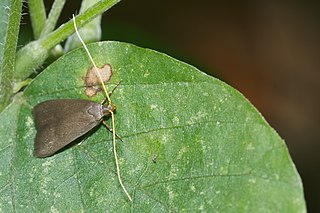
The Lecithocerinae are a subfamily of small moths in the family Lecithoceridae. They are found worldwide, but most species occur in South Asia. The subfamily is characterized by the male genitalia with a bridge-like structure connecting the tegumen and the valva, and the uncus almost always is vestigial with two lobes at the dorsal base, only exceptionally united into a broad plate, but never as a thorn or spine.
Carodista is a genus of moths in the family Lecithoceridae. The genus was erected by Edward Meyrick in 1925.
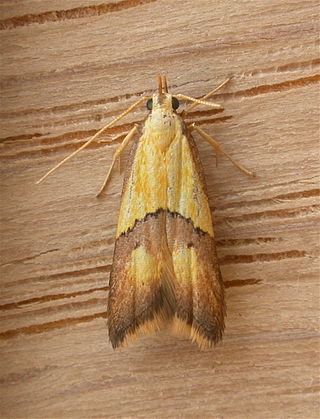
Crocanthes is a genus of moths in the family Lecithoceridae.
Frisilia is a genus of moths in the family Lecithoceridae. The genus was erected by Francis Walker in 1864.

Homaloxestis is a genus of moths in the family Lecithoceridae. The genus was erected by Edward Meyrick in 1910.

Lecithocera is a genus of moths in the lecithocerid subfamily Lecithocerinae. The genus was erected by Gottlieb August Wilhelm Herrich-Schäffer in 1853.

Nosphistica is a genus of moth in the family Lecithoceridae.

Thubana is a genus of moths in the family Lecithoceridae and subfamily Torodorinae. The genus was erected by Francis Walker in 1864.
Torodora is a genus of moths in the family Lecithoceridae. The genus was erected by Edward Meyrick in 1894.
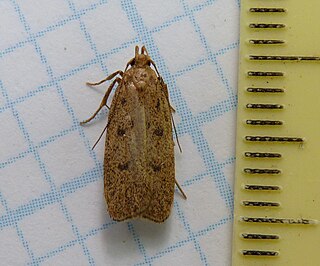
The Symmocinae are a subfamily of moths in the superfamily Gelechioidea. These small moths are found mainly in the Palearctic and Africa.
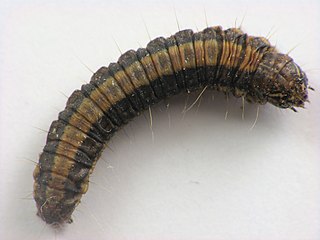
The Epipaschiinae are a subfamily of snout moths. More than 720 species are known today, which are found mainly in the tropics and subtropics. Some occur in temperate regions, but the subfamily is apparently completely absent from Europe, at least as native species. A few Epipaschiinae are crop pests that may occasionally become economically significant.
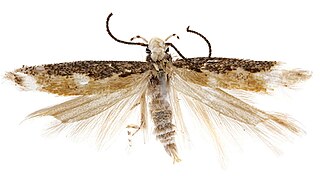
Gelechiinae is a subfamily of moths in the family Gelechiidae. It was described by Henry Tibbats Stainton in 1854.

Anacampsinae is a subfamily of moths in the family Gelechiidae.
The Torodorinae are a subfamily of small moths in the family Lecithoceridae.
Pacificulla is a genus of moths in the family Lecithoceridae. The genus was described by Park in 2013.
Crocanthes thermocharis is a moth in the family Lecithoceridae. It was described by Edward Meyrick in 1931. It is found on New Guinea.
Crocanthes ignea is a moth in the family Lecithoceridae. It was described by Edward Meyrick in 1925. It is found on New Guinea.












